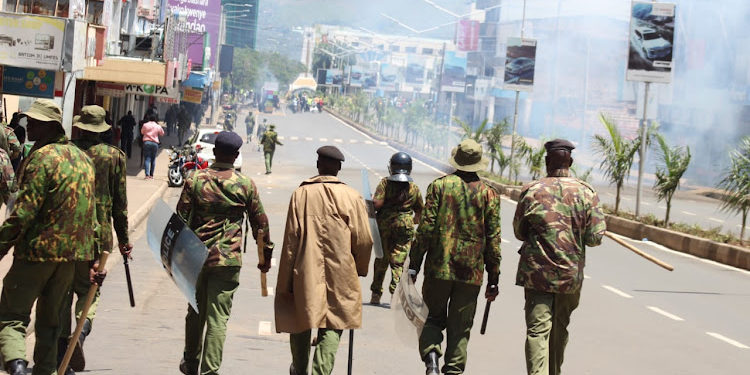A majority of Kenyans believe their police force is corrupt and abusive, a new survey reveals. Fifty-six percent of Kenyans say “most” or “all” police officers are corrupt – 10 percentage points higher than the average across 39 African countries, according to the report published by Afrobarometer.
The survey of over 50,000 people across Africa found deep concerns about police brutality and misconduct. But Kenyans stood out with exceptionally high rates of perceiving police as corrupt and violent.
“In Kenya, 56% of citizens see ‘most’ or ‘all’ police as corrupt, compared to the average of 46% across 39 countries,” the report states. Meanwhile, 48% of Kenyans say police often or always use excessive force against protesters – again topping the 39-country average of 38%.
Kenyans who sought police assistance also reported extremely high rates of bribery. “Among those seeking assistance, 45% of Kenyans paid a bribe, higher than the 36% average,” the report says.
Only 24% of Kenyans said police operate professionally and respect rights, far below the average of 32% across countries surveyed.
“The data shows Kenyans have more negative views of police professionalism, corruption, and brutality compared to citizens in other African countries on average,” the report concludes about Kenya.
Afrobarometer conducts face-to-face public attitude surveys across Africa. Its latest polls covered 39 countries between 2021 and 2023.
Kenya has witnessed protests recently against perceived police excesses. “This finding seems very newsworthy for Kenya. It suggests the need for police reform,” the report says.
But Kenyans are not alone in accusing police of excessive force. The report cites abuses during protests in Nigeria, Uganda, Chad and elsewhere.
“In October 2022, Chadian security officers were accused of killing 128 people and injuring many more during demonstrations,” it states.
While experiences vary across countries, only 32% of Africans surveyed believe their police force generally operates professionally. The report blames unlawful arrests, corruption, brutality and lack of accountability for the prevailing negative attitudes.
“Our analysis reveals that negative perceptions of police professionalism and corruption go hand in hand with low public trust in the police, poor marks on government performance, and citizens’ sense of insecurity,” the report says.


















